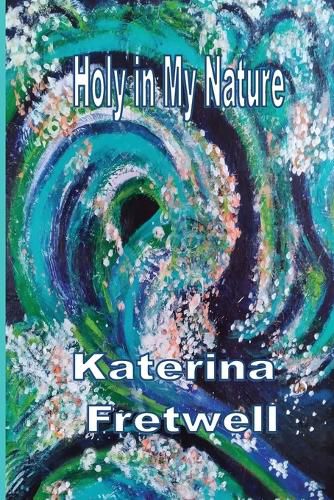Readings Newsletter
Become a Readings Member to make your shopping experience even easier.
Sign in or sign up for free!
You’re not far away from qualifying for FREE standard shipping within Australia
You’ve qualified for FREE standard shipping within Australia
The cart is loading…






This title is printed to order. This book may have been self-published. If so, we cannot guarantee the quality of the content. In the main most books will have gone through the editing process however some may not. We therefore suggest that you be aware of this before ordering this book. If in doubt check either the author or publisher’s details as we are unable to accept any returns unless they are faulty. Please contact us if you have any questions.
Fretwell uses indents, varied line lengths, and single line stanzas to emphasize her verse that reflect both poise and poignancy on the impact humans are having on the planet. Her earthy affection is delivered in a contemporary Canadian style that, put in a musical context, would compare to a soulful sax-jazz rhythm, combined with rapped alliteration and set in a classical theory of personal point of view. Fretwell breathes what she feels. At times, deadly serious, or seriously funny, she holds a beat to the world's telling problem, humanities careless activity, that mirrors a Burtynsky photo like an expenditure statement of accounts owing. Keith Inman, author of "The War Poems -Screaming at Heaven" What might we say is ''the usefulness of poetry"? Might it give us hope for a rescuing from past and present harms, a restoration of nature's equilibrium, what the biologists call homeostasis, the balance within the ecology we have disturbed by our hubris, our greed to consume, our proclivity for destruction, and even the ironic taxonomy of Adam's role in naming the beasts and husbanding the flock betrays a kind of vanity. Perhaps we are simply intelligent parasites doomed to self-destruction. There seems to be a sufficiency of wildfire, flood, drought, hurricane, to warn us we're on a path to ruination. Katerina Fretwell in her book, Holy in My Nature, uses the word 'solastalgia' to help the reader begin to comprehend the individual and collective malaise we feel because of the deleterious impact we're having on our environment. Climate change, the loss of wilderness, mass extinction, the melting of the polar ice caps, and on and on we seem to go. She dedicates her book 'to nature lovers, everyone concerned about our planetary impact." Her poems make a compelling argument. Might the voice of the poet be called upon to awaken humanity to a kind and gentler stewardship? Fretwell writes in one poem, "Nature sings, listen " and reading these poems is a form of deeply attentive listening, and that's the doorway to the possibility of healing. John B. Lee, Poet Laureate of Brantford, Ontario, Canada
$9.00 standard shipping within Australia
FREE standard shipping within Australia for orders over $100.00
Express & International shipping calculated at checkout
This title is printed to order. This book may have been self-published. If so, we cannot guarantee the quality of the content. In the main most books will have gone through the editing process however some may not. We therefore suggest that you be aware of this before ordering this book. If in doubt check either the author or publisher’s details as we are unable to accept any returns unless they are faulty. Please contact us if you have any questions.
Fretwell uses indents, varied line lengths, and single line stanzas to emphasize her verse that reflect both poise and poignancy on the impact humans are having on the planet. Her earthy affection is delivered in a contemporary Canadian style that, put in a musical context, would compare to a soulful sax-jazz rhythm, combined with rapped alliteration and set in a classical theory of personal point of view. Fretwell breathes what she feels. At times, deadly serious, or seriously funny, she holds a beat to the world's telling problem, humanities careless activity, that mirrors a Burtynsky photo like an expenditure statement of accounts owing. Keith Inman, author of "The War Poems -Screaming at Heaven" What might we say is ''the usefulness of poetry"? Might it give us hope for a rescuing from past and present harms, a restoration of nature's equilibrium, what the biologists call homeostasis, the balance within the ecology we have disturbed by our hubris, our greed to consume, our proclivity for destruction, and even the ironic taxonomy of Adam's role in naming the beasts and husbanding the flock betrays a kind of vanity. Perhaps we are simply intelligent parasites doomed to self-destruction. There seems to be a sufficiency of wildfire, flood, drought, hurricane, to warn us we're on a path to ruination. Katerina Fretwell in her book, Holy in My Nature, uses the word 'solastalgia' to help the reader begin to comprehend the individual and collective malaise we feel because of the deleterious impact we're having on our environment. Climate change, the loss of wilderness, mass extinction, the melting of the polar ice caps, and on and on we seem to go. She dedicates her book 'to nature lovers, everyone concerned about our planetary impact." Her poems make a compelling argument. Might the voice of the poet be called upon to awaken humanity to a kind and gentler stewardship? Fretwell writes in one poem, "Nature sings, listen " and reading these poems is a form of deeply attentive listening, and that's the doorway to the possibility of healing. John B. Lee, Poet Laureate of Brantford, Ontario, Canada